In John G. Miller’s book, QBQ: The Question Behind the Question, he writes about questions you can ask yourself to help eliminate blame, complaining, and procrastination.
Miller states that people often blame others for their problems, both personally and in the workplace. This action directly contradicts our Core Value of “Doing the Right Thing.”
The value states: “Always upholding our commitments and embracing a culture of transparent accountability.”
Blaming others for your problems hinders your growth and progress, shows that you lack accountability, and is a behavior we want our team to avoid at all costs.
Instead of asking negatively connotated questions (“Why did you perform your task so poorly?”), we should all aim to ask more solution-seeking “I” questions (“What can I do to help solve the issue at hand?”).
A chapter in QBQ!, “I Can Only Change Me”, states that when dealing with any circumstance, YOU are the only thing you can control.
Let’s say you’re a supervisor dealing with a problematic employee. You do your best to mentor that employee, however, nothing is working. The attitude you should be changing is your own. Your role as a supervisor should be to coach and counsel — not to change another person.
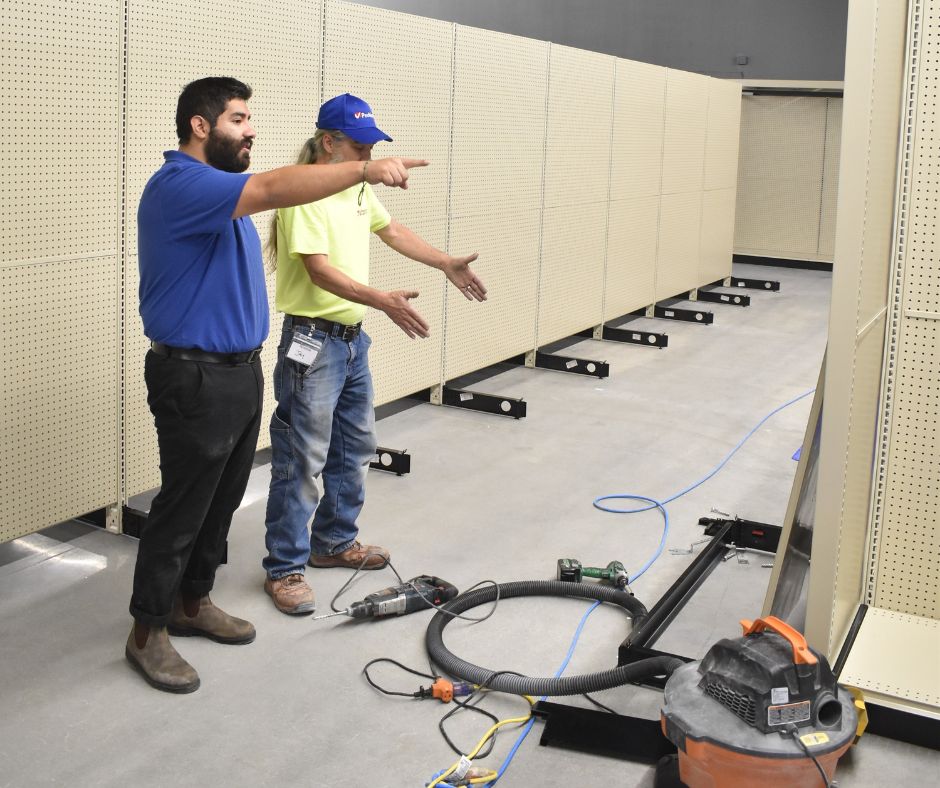
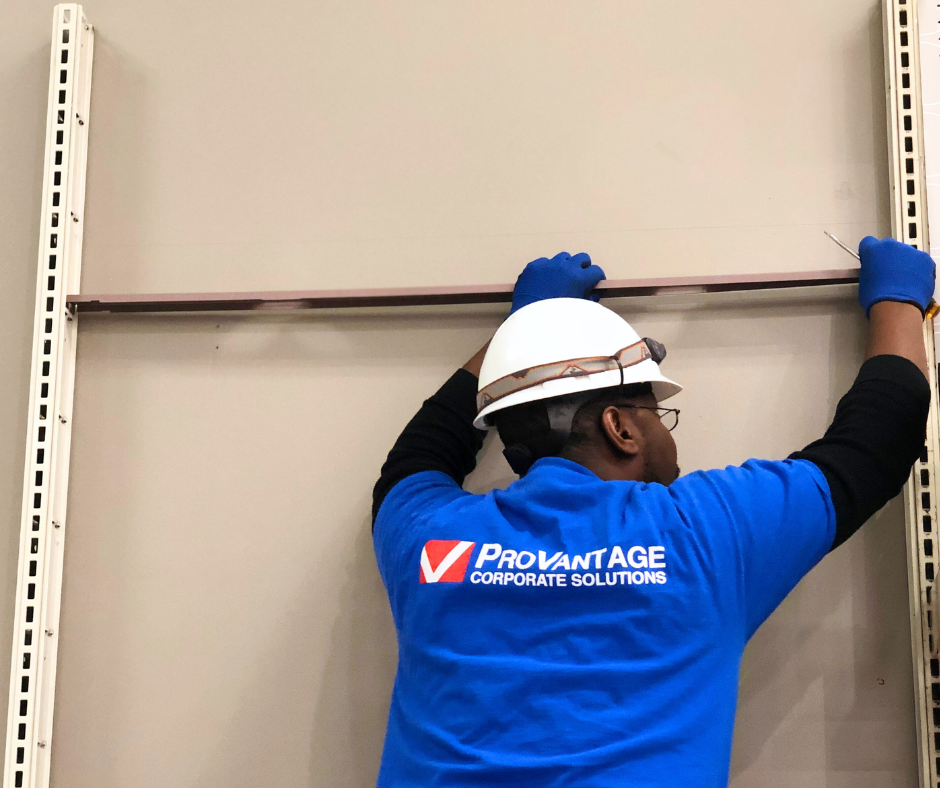
Change occurs internally and is a result of your own decisions.
The same rule applies to the person in the other shoes — an employee working for a difficult supervisor.
In other words, the employee cannot change the supervisor, and the supervisor cannot change the employee. The only aspect that either party can change is him or herself and how they handle the situation.
This concept is one we must fully understand and implement in the workplace every day.
Placing blame is commonplace in the workplace and will only harm your team, yet, blaming others happens every single day.
Here are three personal anecdotes, provided by Miller, of instances he witnessed this negative, blameful behavior occur in public:
1.
“I wanted to buy coffee at a gas station convenience store, but the pot was empty. I told the person behind the counter the coffee pot was empty. He then pointed at a co-worker and said, ‘Coffee is her department!'”
2.
“On a cross-country flight, the flight attendant got on the intercom and said, ‘Sorry everyone! The movie we promised you will not be shown today. Catering put the wrong one on board.’”
3.
“While picking up take-out pizza, the pizza place lost our order. Suddenly out of the blue, the man behind the counter says, ‘Hey, don’t blame me, my shift just started!’”
We often hear things like, “It’s not my fault”, “It’s not my job” or “It’s not my problem.” Instead, we should be asking ourselves, “How can I do my job better?”, “How can I improve this situation?” or “How can I support my team members?”
You are all encouraged to move away from asking victim-like questions. Instead, start asking questions beginning with “what” or “how” and containing “I”. Rephrase your questions to match this format, and you will undoubtedly help bring the focus back to yourself and remain accountable for your actions.
Ask more focused “I” questions, and before you know it, you’ll be making better decisions that ultimately lead you and your team to success.
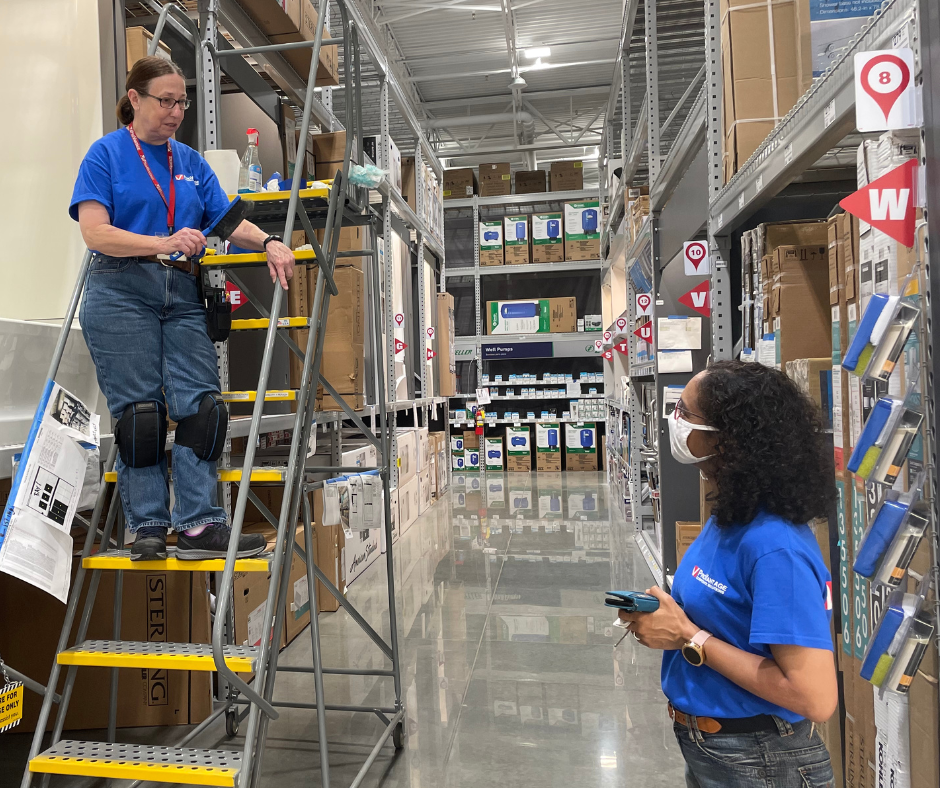
To learn more about ProVantage Corporate Solutions, please check out our other blogs at the link below!
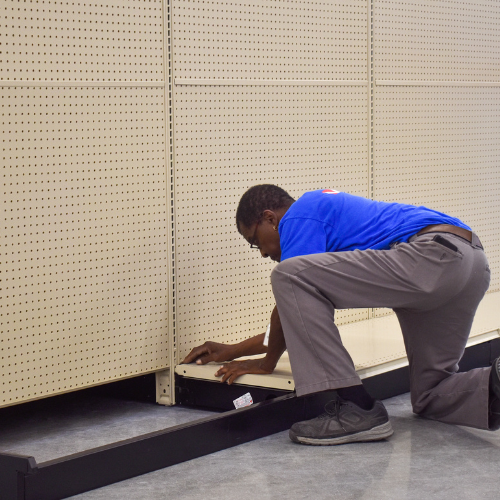
ProVantage supports every detail of your store setup—from fixtures to signage to warehousing. With Cruxos, get real-time oversight and keep every launch on time and on brand. Explore our New Store Setup Services →

From signage to fixtures to full-store transformations, ProVantage delivers seamless remodels with minimal disruption. Backed by Cruxos and our Signature Fit and Finish. Explore our Store Remodel Services →

ProVantage delivers consistent, brand-aligned retail resets at any scale—without disrupting operations. With Cruxos, you get real-time tracking every step of the way. Explore our Store Reset Services →

From storage to sales floor, ProVantage installs steel racking with strength, precision, and care. Scalable, flexible, and backed by Cruxos for real-time visibility. Explore our Steel Fixture Install Services →
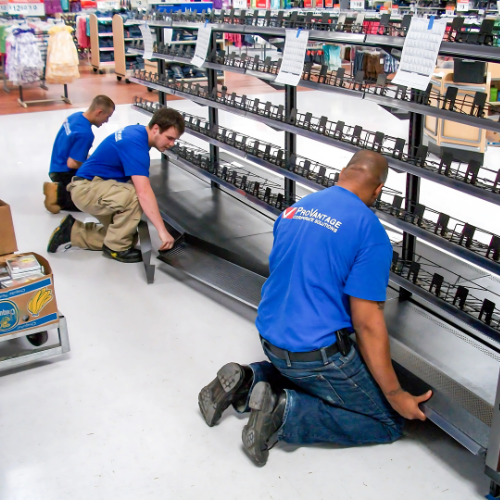
ProVantage installs retail fixtures with precision and consistency—from cash wraps to custom displays. Backed by Cruxos for real-time tracking and quality checks. Explore our Fixture Installation Services →
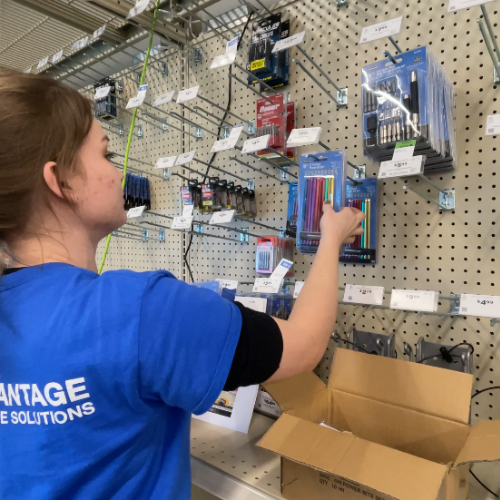
ProVantage delivers scalable retail merchandising with precision and consistency—from cosmetics to home hardware, our teams ensure every product is placed right and every aisle reflects your brand. Backed by Cruxos for real-time tracking and quality checks. Explore our Retail Merchandising Services →

ProVantage installs retail millwork with expert craftsmanship and precision—from cash wraps and counters to cabinets and custom elements. Built to perform and designed to impress. Backed by Cruxos for real-time tracking and quality checks. Explore our Millwork Services →

ProVantage offers retail warehousing and logistics with precision and flexibility—receiving, storing, and delivering materials exactly when and where they’re needed. Backed by Cruxos for real-time visibility. Explore our Warehousing Services →

ProVantage delivers expert grocery retail support—from fixtures and refrigerated cases to signage and merchandising—handled with speed and care. Backed by Cruxos for real-time oversight. Explore our Grocery Services →
The best writing services take their reputation seriously. They won’t cooperate with a free essay writing papers do my homework writer or someone underqualified, so essay websites should have grammatically fluent info.
